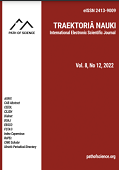Comparison of Legal Authority of Notary and Electronic Signature Validity in Indonesia and the United States of America
Comparison of Legal Authority of Notary and Electronic Signature Validity in Indonesia and the United States of America
Author(s): Ni Ketut Indah Primadani, Djumardi Djumardi, Aris MunandarSubject(s): Law, Constitution, Jurisprudence, Civil Law, Public Law, Comparative Law
Published by: Altezoro, s. r. o. & Dialog
Keywords: Notary Legal Authority; Signature Legitimacy;
Summary/Abstract: The purpose of this research is to compare the analysis of the legal authority of a notary in Indonesia with the control of a notary in the United States. This is normative legal research with a statute, conceptual, and historical approach. According to a study, in carrying out their duties and positions, notaries in Indonesia are subject to and obedient to the law, which lies in the enactment for all of Indonesia. In contrast, in the United States, each state has its notary law. The legality of electronic signatures is valid in the eyes of the law when they meet several conditions. Electronic signatures must be certified to guarantee trust for the owner, namely in the form of authentication data. Any signature requirements under the law can be met in the states and territories where ESIGN is valid. In addition, electronic signatures can be presented as evidence and will survive in court as applicable. Uniform Electronic Transactions Act applies in some Indonesian states and territories.
Journal: Traektoriâ Nauki
- Issue Year: 9/2023
- Issue No: 01
- Page Range: 3023-3030
- Page Count: 8
- Language: English

